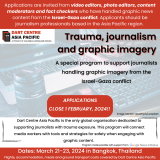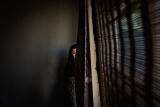October 11, 2023
Dart Centre Europe (DCE) is seeking to fill the role of Finance Manager/Company Secretary.
DCE is a thought leader in the field of journalism and trauma and is a premier resource for journalists, NGOs and others seeking advice, best practice and training in the area of journalism and trauma.
This is a great opportunity for an experienced company secretary to become a member of Dart Europe’s management team and build relationships with Board members and the management team as the ‘go to’ person for all matters of finance, governance, compliance and charity law.



